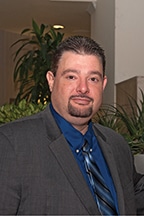Choosing A Trustee & Power Of Attorney
 By Frank Demarinis
By Frank Demarinis
One primary consideration in the estate planning process is deciding who will administer your affairs if you are incapacitated or pass. In a Revocable Living Trust, this person is called the “successor trustee.” The Living Trust Successor Trustee takes over management of a trust when the original trustee or co-trustees are no longer able to fulfill their duties. The successor trustee is called a fiduciary because they have a legal (fiduciary) duty to act in the best interest of the trust beneficiaries.
When deciding who will be your successor trustee, you can appoint a layperson or a professional, licensed third-party fiduciary. The type of successor trustee that works best for you depends largely on your particular circumstances and goals.
Layperson As Successor Trustee
The vast majority of people have a family member or members as successor trustee or co-trustees. The successor trustee is largely guided by the terms of the trust and although conflict is possible, most trust administrations are a fairly straightforward and amicable process. Often, people will choose one of their children, a sibling, or a trusted friend. You can appoint co-trustees, who will act together in the trust administration.
In choosing a layperson as a successor trustee, it is probably best to choose from among the beneficiaries to ensure that their personal interest is aligned with the beneficiaries of the trust. In many states, even a layperson trustee is entitled to reasonable compensation unless the trust explicitly requires the trustee to waive compensation.

Professional Third-Party Fiduciary Trustee
The primary benefit of choosing a professional third party fiduciary is that you know your wishes will be carried out without the potential conflict encountered when a family member is the trustee, and is dealing with other family members who are beneficiaries. A professional fiduciary may have a minimum fee based on the size of the estate. These fees could vary depending on the size and complexity of the estate.
A professional fiduciary agent may be a consideration compared to a layperson that may not be competent themselves or even alive when you need them. One way of dealing with this issue is by allowing the beneficiaries to choose by a majority vote which professional fiduciary to hire as trustee. Beneficiaries should be aware of the trust and content and communication is important.
A third option is to combine a layperson and a professional fiduciary as co-trustees. The main downside however, is the expense of the professional fiduciary. Deciding whom to designate as your successor trustee or co-trustees is an important choice. The successor trustee is the gatekeeper ensuring that your wishes are carried out. It is not a difficult job to be a successor trustee but you should take care to choose a successor that you and your beneficiaries can trust implicitly.
Senior Advisors of Delaware, LLC offers Power Of Attorney, emergency planning and an agent on call to respond to the “what if.” Our non-profit program “Advanced Directive” maintains emergency service for seniors without local family support, able to respond in a crisis. Call us for a free consultation, Frank Demarinis at 1-800-564-0173.
Non-profit grant slots for ages 85+, at risk of; having had a recent nursing home stay, or frequent re-hospitalization, would benefit from an Assigned Power Of Attorney (Health or Financial).
1-800-564-0173


